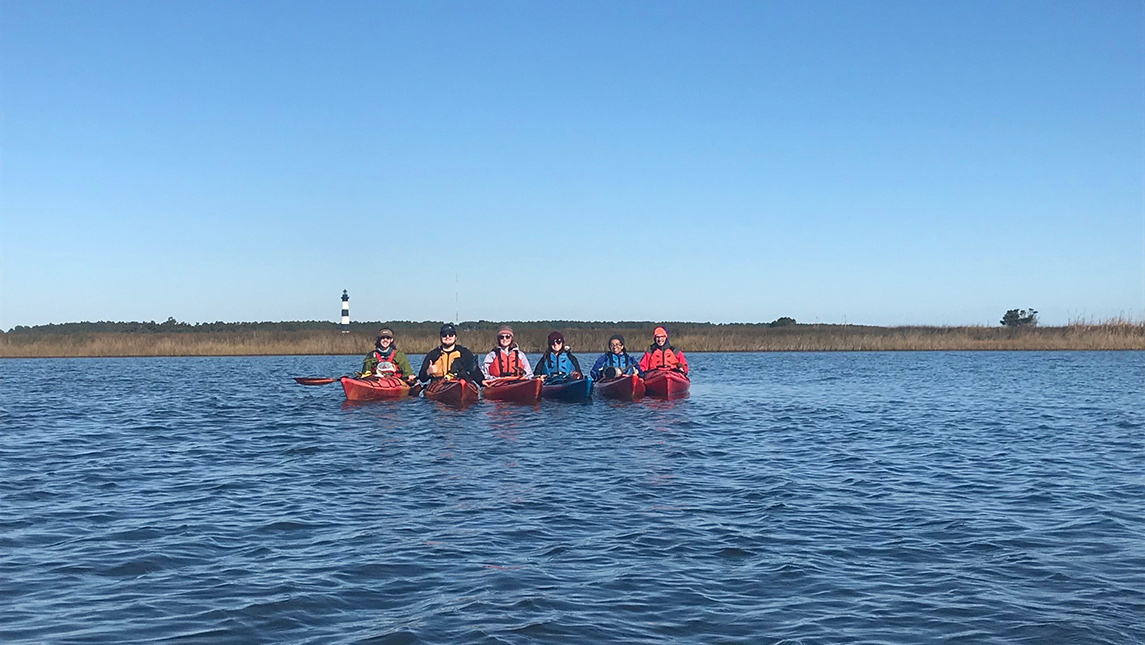
UNC Greensboro’s Department of Geography, Environment, and Sustainability (GES) is putting itself on the map with two new undergraduate degree programs that will be available starting fall 2020: a bachelor of science in geography and a bachelor of arts in environment and sustainability.
The previous Environmental & Sustainability Studies Program (EVS) and Department of Geography (GEO) merged in August 2018.
BA in Environment & Sustainability
The new degree will have two concentrations: natural sciences or equity, development, and ethics. The former focuses on science, the latter more on social sciences and humanities. The Environment and Sustainability minors have also been revised.
The restructuring allows GES to address a growing student population. Dr. Aaron Allen, EVS director, says that between 2014 and 2019, EVS majors increased from 40 to over 100.
He’s getting some assistance with advising, something that he used to do on his own. “Ann Berry Somers is a wonderful collaborator. She’s doing environmental studies advising, and I’m doing sustainability and honors advising.”
The new curriculum allows students to interact more in core courses. As Allen notes, “This is a way of creating community as well as alumni networks, and it’s really upping the ante on the program’s rigor and focus.”
Allen points to an innovative course, Environment and Experience. “The course gets students out into the environment and they reflect on their experiences. They learn something about the places they visit: the North Carolina coast to kayak, southern Appalachia to hike. They study urban sustainable architecture in Greensboro, visit organic farms in the region – they can even do turtle conservation in Costa Rica or travel ethically in Italy.”
BS in Geography
“For decades we’ve had a BA only,” says associate professor of Geography Dr. Dan Royall. As for the difference between a BA and BS? “Students have different aspirations and goals, and different types of employment with a geography degree can be found with either a BA or BS, with some students gravitating toward job types that may not be dependent on highly developed technical and applied skills. In contrast, the BS will provide strong technical skills and an experience-based background for the increasingly technology-driven jobs market.”
He adds, “The BA is a great program and it will continue to meet the needs of many students. But now there is an excellent option for students who might transfer from other STEM-oriented programs, or our regular students who want a structure that allows and encourages them to obtain a deeper understanding of foundational sciences and skills that will further enhance their job prospects in the technology- and knowledge-based economy.”
The BS will have three concentrations: earth sciences, geographic information systems (GIS), and urban planning. The BS will provide students with a higher level of exposure to foundational sciences, in particular biology, chemistry, and physics.
Allen notes the ultimate goal for GES is to better prepare students to deal with the challenges of a rapidly changing world.
“Our department’s programs are really poised to make a difference at the University, in students’ lives, in our communities, and in the world.”
For more information on the Department of Geography, Environment, and Sustainability, see ges.uncg.edu.
Story by Matthew Bryant, University Communications
Photography by Nathan Rector


